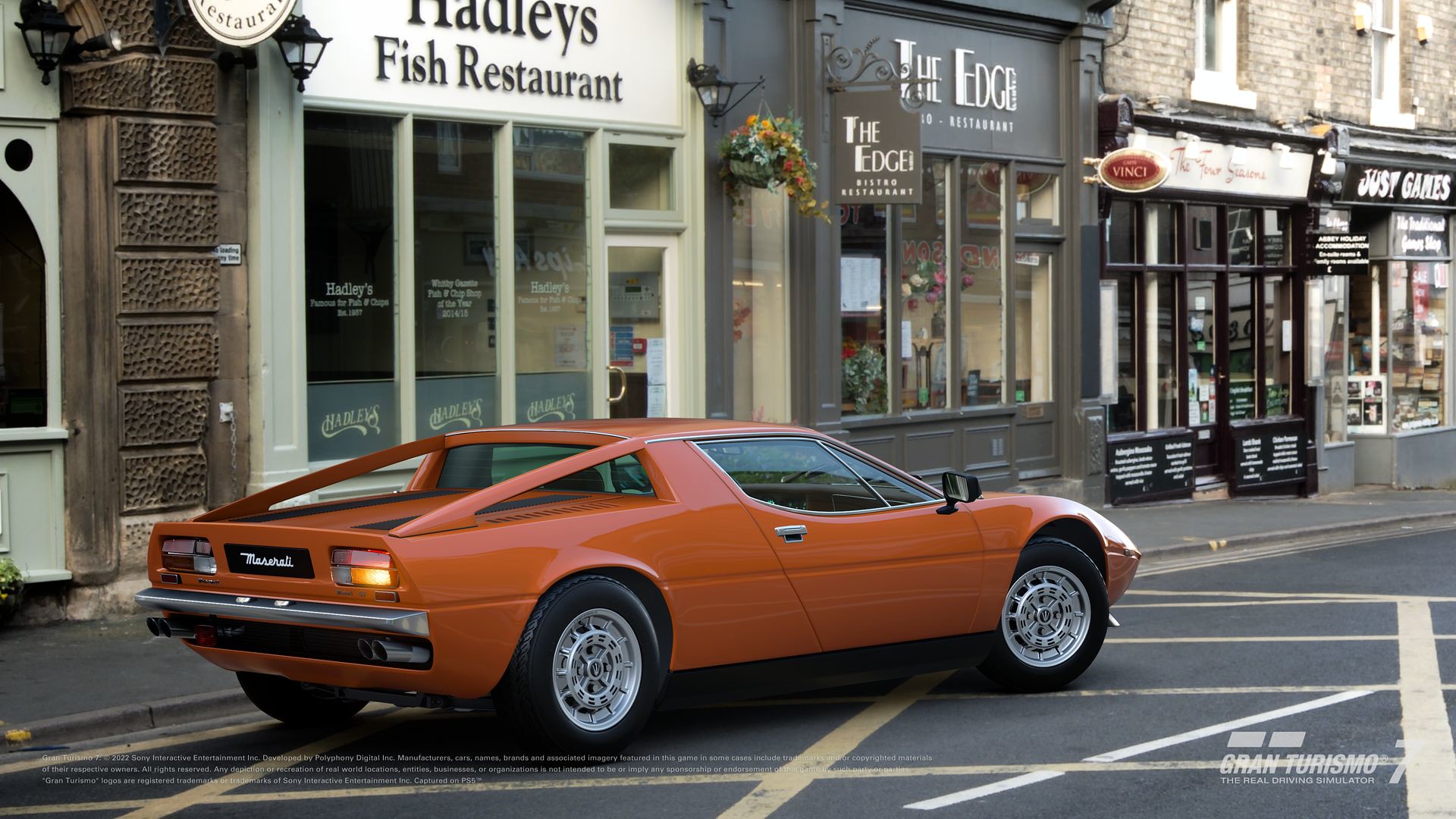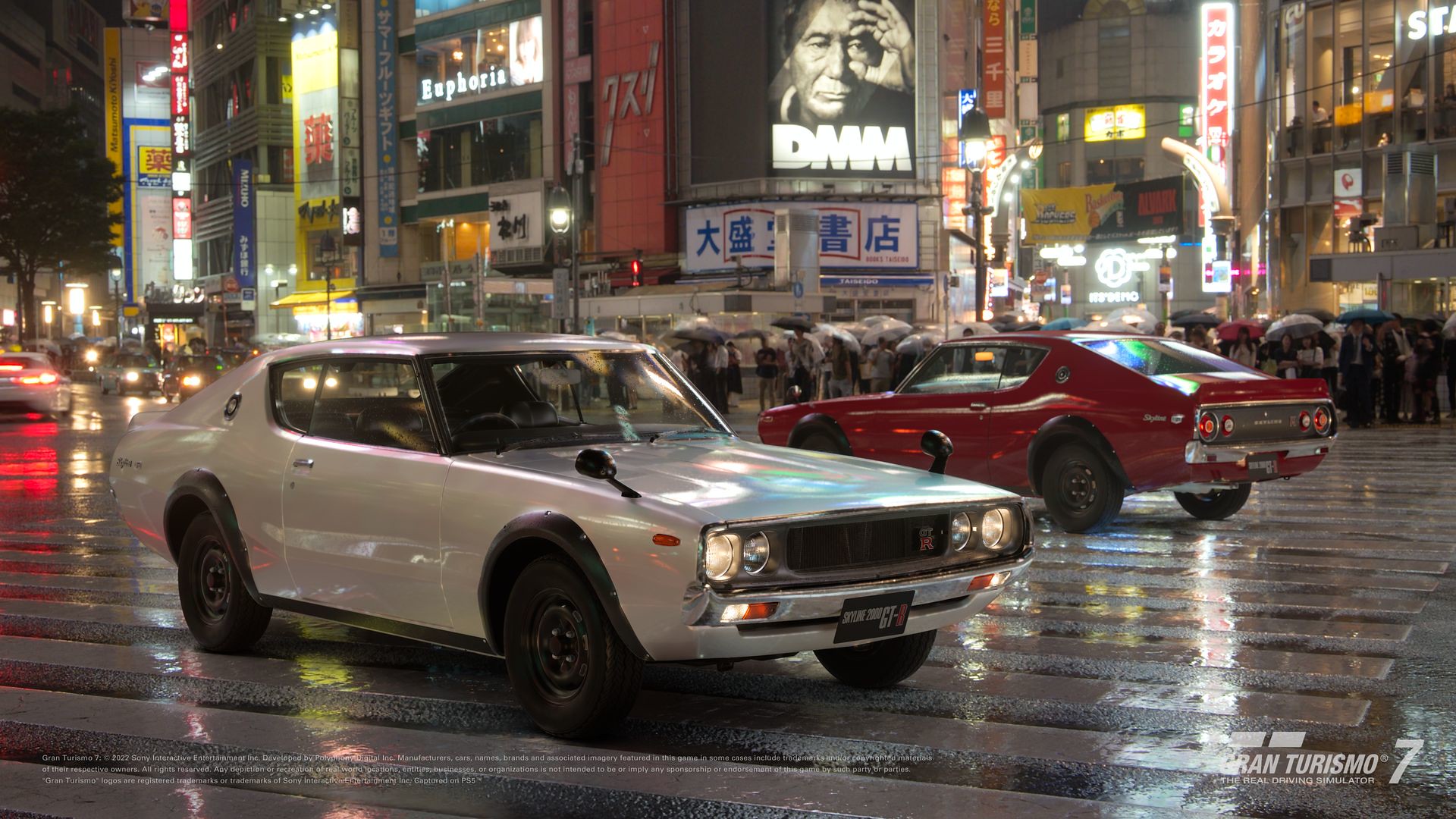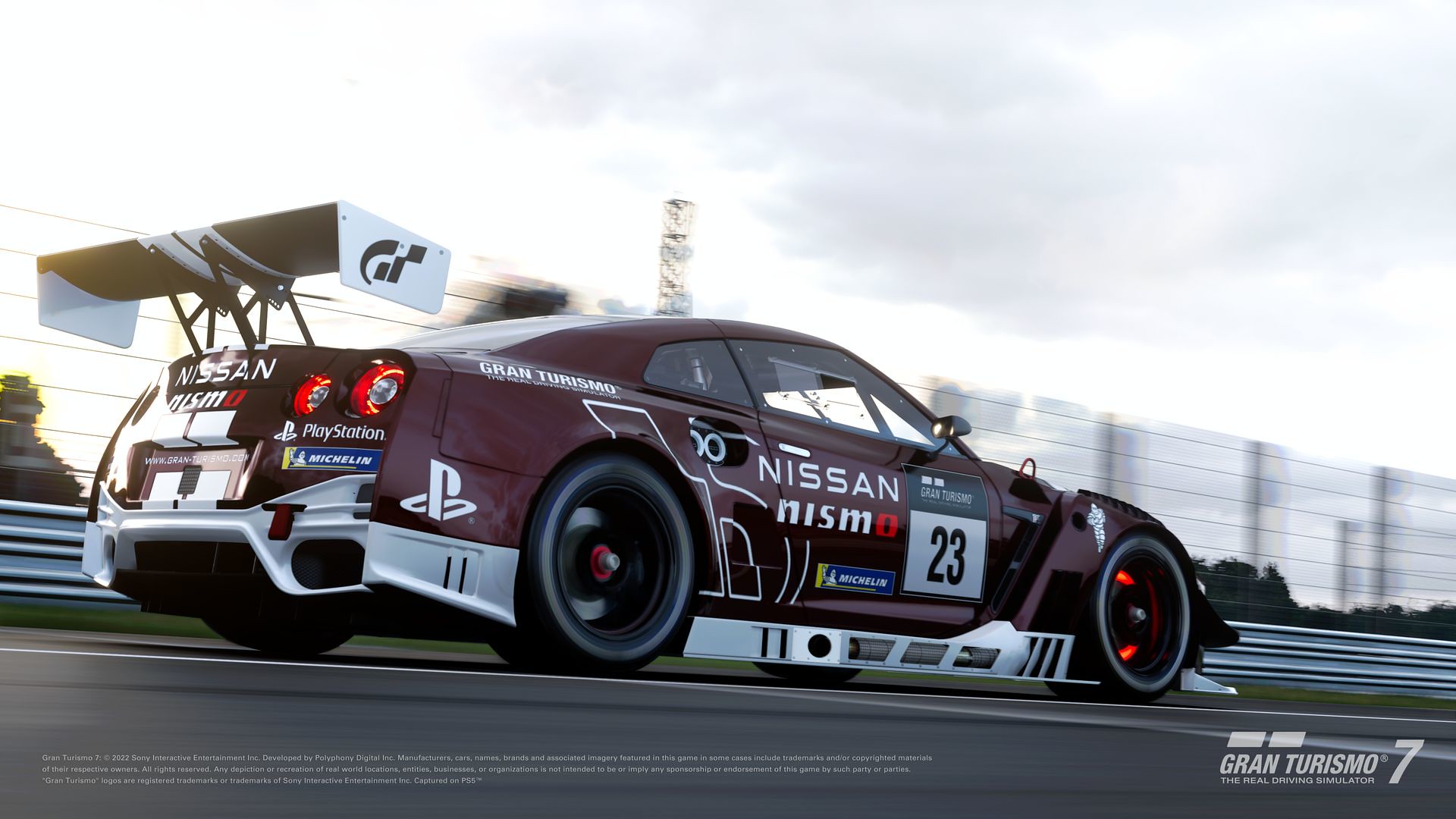
[ad_1]
Gran Turismo players! The 1.25 update for Gran Turismo 7 arrives today October 19 at 11:00pm PDT* (October 20 at 7am BST / 3pm JST). We’ll take a closer look at what’s included, but first, check out the launch trailer.

Four new cars join Gran Turismo 7:

Maserati Merak SS ’80
This high-output model of the Merak has been tuned for even sharper performance.
The Maserati Merak was a mid-engine sports car introduced in 1972. It was developed to be a sister model to the Bora which had debuted a year earlier. The exterior stylings were very similar to the Bora, both having been designed by Giugiaro. However, while the Bora had been a fastback, the Merak was a notchback with a fastback style pillar. This allowed it to retain the same silhouette while making the car feel lighter and improving engine cooling. Similarly, while the Bora housed a V8, the Merak was equipped with a 187 BHP 3L V6 taken from the Citroen SM. With this more compact engine, the seating arrangement changed to a 2+2 layout which allowed for some luggage space. A high-performance model was later released in 1975 as the Merak SS. The compression ratio was increased and other adjustments were made to tune the engine to 216 BHP, increasing the top speed from 139.8 mph to 155.3 mph.

Mazda Roadster NR-A (ND) ’22
This motorsports base model epitomizes the core concepts of the Roadster.
Released in 2015, the 4th generation ‘ND’ Roadster received worldwide praise for its return to the Roadster’s original concept of ‘Jinba Ittai’ (“horse and rider moving as one”). The essence of the ND was most purely expressed in the NR-A grade, a motorsports oriented base model. The NR-A first joined the line-up on the 2nd generation ‘NB’ model, where it was introduced with the idea of providing an easy way for anyone to experience the joy of circuit racing.
These ideas are carried on in the ND version which has been modified with a particular focus on sports driving. The power plant frame that connects the transmission to the rear differential has been upgraded, along with accompanying parts such as the driveshaft, LSD and differential case.
The radiator and brake rotors have also been upsized, and the suspension uses height adjustable dampers made by Bilstein. Another useful feature is the driver is now about to pull up statistics like fuel consumption on the Multi-Information Display from the steering wheel mounted audio control switches.
This 2022 model has further improvements, with the introduction of the new Kinematic Posture Control system greatly increasing rear-end stability. The options list also features racing equipment such as roll bars and bucket seats making it easy to turn this car into a thoroughbred racing machine. The NR-A may be the answer to the prayers of many a driver, offering as much fun on the city streets as on the track.

Nissan Skyline 2000GT-R (KPGC110) ’73
Only 197 examples of this GT-R were made before it was unfortunately discontinued in the wake of stricter emissions standards.
The C10 Skyline, nicknamed the ‘Hakosuka’ (meaning box skyline), handed the baton to a new model in September 1972. The new model C110 was given the nickname ‘Kenmeri’ from its commercials, and was an explosive hit after its debut. The body had a fluid form, omitting all unnecessary lines. However it still had the surface lines and the 4 round headlights that were identifying marks of the Skyline.
The GT-R emblem returned to this Kenmeri in the following year, in January 1973. The model code of this GT-R was KPGC110, and it was equipped with the same legendary engine, the S20 inline-6-cylinder. There was no change in the 157 BHP maximum power and 18 kgfm maximum torque. The front strut and rear semi-trailing arm suspension was also the same as the previous GT-R, but the new four-wheel disc brakes were an advancement at the time. With a size of 4,460 mm in length, 1,695 mm width, and 1,380 mm height, it looked one size larger than the ‘Hakosuka’. If all went well, this Kenmeri GT-R should have won many race series as well, but what this car had to fight was the rising emissions regulations. The S20 was almost a pure racing engine, and could not overcome this unremitting requirement. So Nissan made a difficult decision. After only 3 months and 197 cars built, this Kenmeri GT-R disappeared, without ever having raced. Thereafter, Nissan would mothball the GT-R emblem for 16 years, until its comeback with the R32.

Nissan GT-R NISMO GT3 ’18
A racing spec version of the GT-R for GT3 category competition.
The Nissan GT-R Nismo GT3 is an FIA GT3 regulation production race car developed by Nismo based on Nissan’s R35 model GT-R. A GT3 version of the GT-R had been available to customers since 2012, but from 2015 the base model changed to the GT-R Nismo which featured improved body rigidity. The 2018 model changed to a dry sump allowing the engine to be placed approx. 150 mm lower in the engine bay to lower the center of gravity and 150 mm further back to optimize weight distribution. Front body rigidity was also improved and the suspension and members for both the front and rear were redesigned to provide accurate body feedback. The layout of the engine bay also received improvements with the radiators and intercoolers repositioned to provide better airflow and better cooling as a result. By refining airflow, they also succeeded in improving body stability on high-speed sections.
New Scapes
‘Autumn Leaves’ and ‘Whitby’ have been added to the featured section. Check them out below:


[ad_2]





